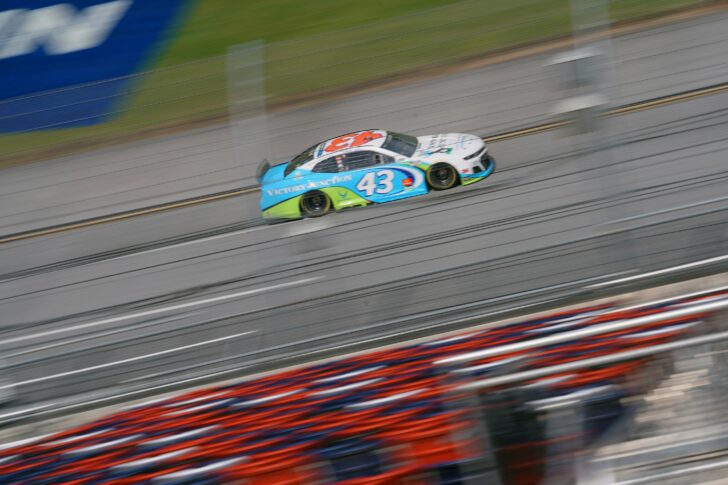Is it possible that the sport that has the furthest way to go has the chance to make the biggest difference?
In 2020, anything is possible.
Go figure: There’s an element of racism tied to NASCAR. A sport that’s deeply entrenched in the South, NASCAR recently had to ban the Confederate Flag at its own events (a ban that it attempted – and failed – in 2015). Not until the BLM movement, and the courage of NASCAR’s only African American driver, Bubba Wallace, that this “novel” concept was revisited. And now, ol’ Dixie won’t be flying at NASCAR races – at least, inside them.
You’ll see that the word novel is in quotes. That’s on purpose, and not necessarily meant in a tongue and cheek way. You see, these times don’t call for humor or sarcasm. In a sport like NASCAR, this ban isn’t as simple as it seems (or should be). It would be grossly unfair to say that NASCAR fans, collectively, are racists; however, it would be grossly negligent to ignore the fact that there are some NASCAR fans who might be (if they’re not, some of their actions are widely considered to be). Let’s be bluntly honest, NASCAR is not exactly a diverse sport – for fans or participants. In 2020, NASCAR isn’t entirely different from Major League Baseball when Jackie Robinson first played for the Brooklyn Dodgers in 1947, or from SEC football prior to Nate Northington laced ‘em for Kentucky in 1967.
So, for NASCAR, stopping an action or eliminating a symbol that a not-so-small contingent still favors could actually be bad for business. If you think NASCAR had never noticed this before, you’d be naive. Their failed attempt in 2015serves as plenty of evidence. But even prior to 2015, it’s not as if the Confederate Flag was “okay” in modern America. It’s not as if the flag just started popping up, either.
Then, for a sport that’s only “mainstream” in the South, it was easy to turn the other cheek. Why pester a paying customer?
Now, regardless of where the sports is popular, it’s impossible to look away. Furthermore, always follow the money.
No sport (see business) wants that lone, ticket-buying fan to stop purchasing tickets, souvenirs, concessions, jerseys, hats, you name it. Losing “a” customer is never favorable.
But losing “a” major sponsor is worse. And no Fortune 500 company in America – today – can knowingly align itself with an entity that tolerates racism.
So, while NASCAR is receiving national praise (from the likes of LeBron James, no less) for taking a stand against acts of racism and for supporting Wallace and the BLM movement – all things that are good, no doubt – it does beg the question: Why not sooner?
NASCAR isn’t stupid or blind. NASCAR is a business.
Sooner was in April, too, though. On April 13, 2020, NASCAR suspended driver Kyle Larson indefinitely for using the “N-word” during a live iRacing event. It should be noted that this was more than a month before George Floyd’s death – so the sport’s recent actions aren’t completely reactionary. One might deduct that the right steps had begun to take place already.
Regardless of the motivation, NASCAR is in a unique position. Within its fanbase, any realist would acknowledge an element of racism. And because that’s the truth, NASCAR has an opportunity to set a strong example, one that’s potentially more impactful than other sports.
None of this is easy.
All of it requires effort and empathy and time.
But if NASCAR, of all the sports, can begin to clean up its own house – even if it that effort arrives noticeably later than it should have – it’s a step in the right direction.
